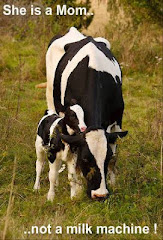
little one sampling the Tofurky below...
I cannot give credit to where credit is due, but this man blogged this a few years ago and I saved it because it was so simply brilliant.
"On Thanksgiving:
All holidays are a bit bizarre in their own special way, and Thanksgiving is no exception. I'm not sure what you were taught about this holiday, but I was taught it was a celebration of all the happiness, abundance and friendship that existed between the American Indians and the European colonials who settled North America. Of course, that whole mythology turned out to be yet another piece of fictitious history invented by textbook authors who were probably too ashamed to admit that explorers like Columbus treated the American Indians like slaves, killing them for sport and stealing their food, women and land.
And then the next wave of colonial imperialists took it upon themselves to virtually wipe out American Indians altogether,
regarding them as wild animals who lacked "civilized" behavior (the "civilized" imperialists were the ones doing most of the killing, of course). The White Man came to the Americas and exterminated native peoples all the way from modern-day Canada to the tip of South America, and much of it was done in the name of religious conquest. "We're bringing God to these natives by killing them all!" If you don't believe me, read, "A People's History of the United States" by Howard Zinn for a dose of historical reality.

These days, I'm not sure what Thanksgiving is really supposed to be celebrating. Most Americans, of course, remain woefully ignorant when it comes to history, and thus the whole concept of any holiday having some historical significance doesn't even enter their over-medicated minds. To the average American consumer, Thanksgiving is simply another day to stuff themselves full of manufactured food products thereby adding on another couple of pounds to their ever-expanding waistlines. (And heck,
there's still Christmas and New Year's to go!) Thanksgiving is a day to buy a mutant turkey that's engineered with such an artificially-large breast that it can barely walk without tipping over. Does anyone really think these artificially-raised mutant
turkeys are real birds like our ancestors ate?

Thanksgiving is apparently a day to be thankful for the fact that the average American family WASTES more food on this holiday than most families in third-world countries would hope to even EAT during some celebration. Yes, it's all about "more." More turkey, more stuffing, more food, more land and more oil. For America, there's no such thing as enough. We have turned abundance into excess. We have made overindulgence a virtue worth celebrating with a day off from the nine-to-five grind.

Look around this Thanksgiving. Do you see anybody honoring the miracle of food from nature? Do you see people thanking Mother Nature, with humility, for providing the nourishment that we require to exist in physical form on this planet? With few exceptions, I don't see that. What I mostly observe is a nation of mouth-stuffing idiots engaged in a mindless tradition of overindulgence accompanied by meaningless gab. Call me a cynic, if you want, but don't do it with your mouth full of decomposing turkey.

If anything, we should all be fasting on Thanksgiving to remind us how much food we're all so lucky to have all the other days of the year. We should be humbled on Thanksgiving. And hopefully, we will take this precious time to reflect upon ourselves and our place in the universe, to examine our actions, our beliefs and our distortions with the intention of emerging from
this holiday with a little more awareness of our true nature and how we impact the world in which we live.
If more of us could manage to do that, Thanksgiving would indeed be a day worth celebrating and not just an empty shell of yet another commercial holiday designed to sell food and trinkets to a population so easily entertained by bread and circuses.
If you are one of the few who spends some time on Thanksgiving in meditation, or prayer, or silent self-reflection, then good for you. You truly honor this holiday in a way that almost everyone else has forgotten".
~some lovely man (wish I remembered your name and website :( but i love you nonetheless.

our future daughter (we hope!)....

This lady's website is awesome. Full of DELICIOUS recipes and info:
http://kissmyvegan.blogspot.com/

